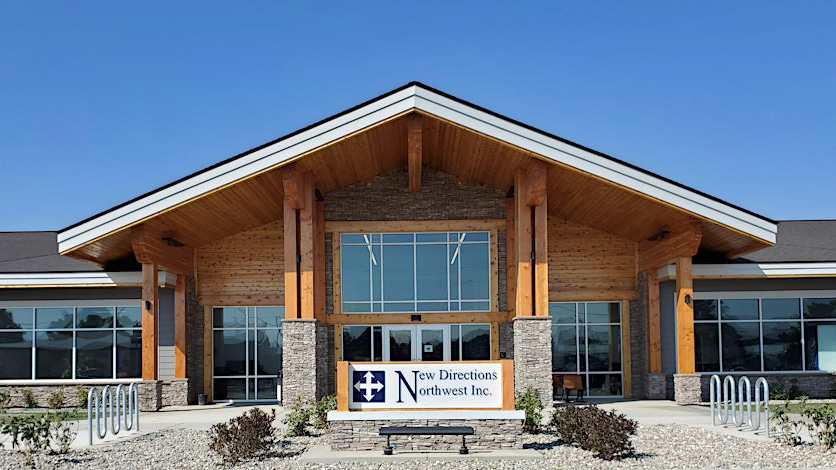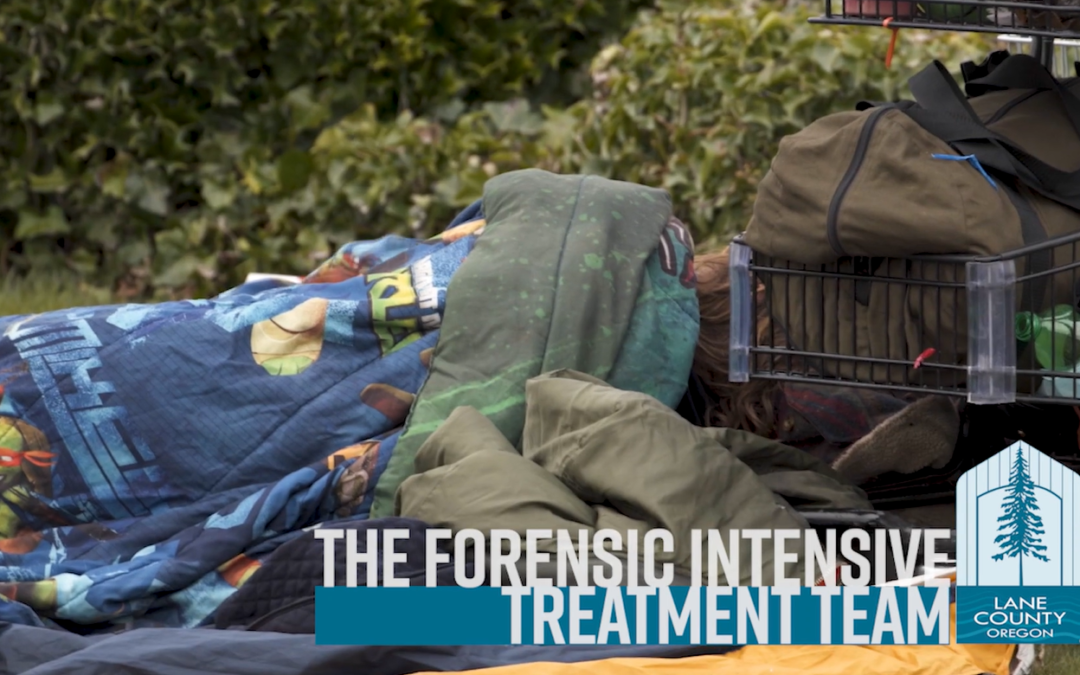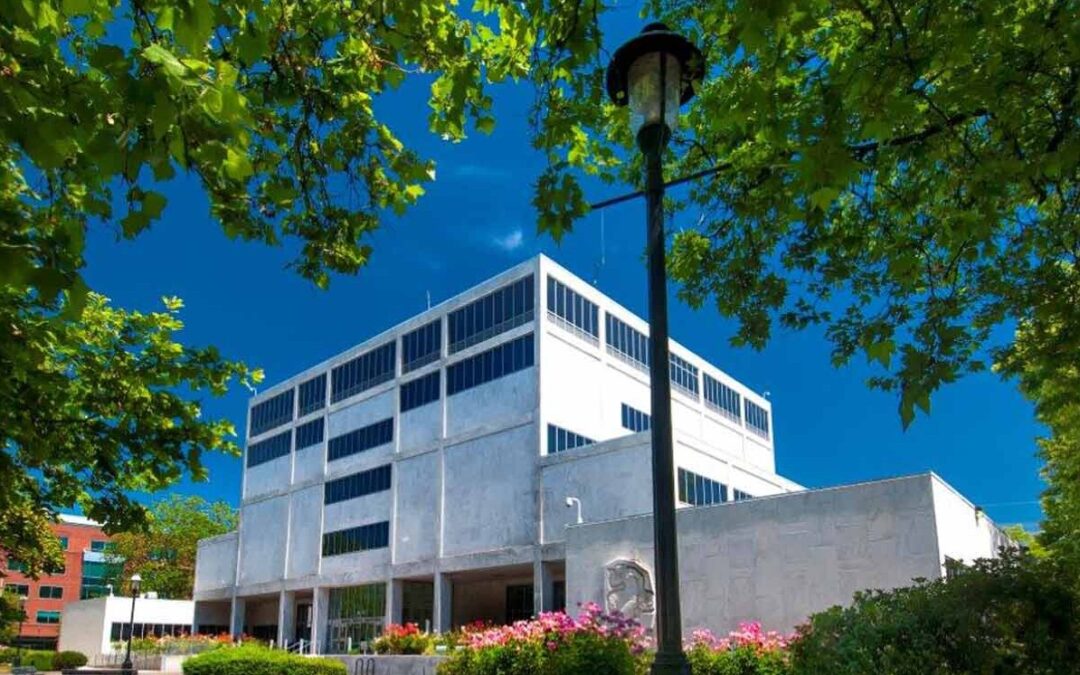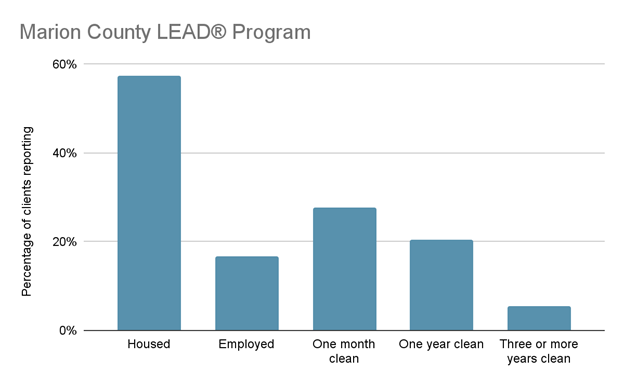
Jul 24, 2024 | County News, Health & Human Services
Baker County is one of several Oregon counties planning on developing a Law Enforcement Assisted Diversion (LEAD®) model deflection program in response to the new drug related misdemeanor that takes effect on Sept. 1. The Oregon Criminal Justice Commission allocated $150,000 to support Baker County as they develop a deflection program from the ground up.
The Association of Oregon Counties (AOC) was successful in advocating for maximum flexibility in how a local deflection program is administered and operated, allowing the required local partners to make the best use of their existing resources and processes. Baker County is collaborating with the Baker County Sheriff’s Office, the Baker City Police Department, Baker County Circuit Court, the Baker County District Attorney’s Office, and a local treatment provider to develop their deflection program, which will be run out of the sheriff’s office.
Baker County Chair Shane Alderson said the program will be up and running by September. “When the state legislature asked for counties to opt in early, I wanted to show support for the amendments to HB 4002, and I knew I had the right people,” Alderson said.
Baker County will use the services of a local treatment provider, New Directions Northwest (NDN), to offer substance use disorder assessments and referrals for individuals referred to the deflection program. As a Behavioral Health Resource Network provider, NDN offers recovery focused peer support programs, behavioral health screenings, and low barrier substance use disorder treatment.
According to NDN Training, Recruitment, and Special Projects Coordinator Claudia Wilcox, “the number of new certified alcohol and drug counselors in Eastern Oregon counties has decreased over the last several years while service needs have increased.”
In response, NDN recently launched the Eastern Oregon Behavioral Health Training Center to increase access to behavioral health services throughout Eastern Oregon by training individuals to become qualified behavioral health providers. The training center is currently on track to become the Eastern Oregon training hub for Oregon Health Authority (OHA) certified peer support specialists in adult addictions as well as certified alcohol and drug counselors.
Obtaining behavioral health provider training usually takes two years, with multi day courses often held in more populated areas. For rural Eastern Oregon residents, travel to these trainings involves significant time and added costs for lodging, per diem, and fuel, making it more expensive than for metropolitan counterparts. Limited budgets and workforce availability in Eastern Oregon further restrict attendance.
To address these financial barriers, the Greater Oregon Behavioral Health (GOBHI) awarded grants to the training center to provide stipends for travel, lodging, per diem, and childcare, as well as tuition scholarships. The training center’s central location in Eastern Oregon allows most individuals to commute on the same day as the training.
By the end of 2024 the training center’s goal is to see 30 new Certified Recovery Mentors and 36 new Certified Alcohol and Drug Counselors in the Eastern Oregon region. Courses are being taught onsite at the NDN Outpatient Facility in Baker County. In March, NDN purchased the former Blue Mountain Community College building in Baker City for use as a future home for the training center. The facility is currently being remodeled and will open soon.
Alderson says the county has hired a program coordinator, and is currently working on training for law enforcement and behavioral health providers, operational procedures, and a tracking system. “We have an outstanding team,” he said, “and I’m very proud of how everyone has stepped up.”
Contributed by: Erin Good | Communications Coordinator
This is the third article in AOC’s series on counties setting up deflection programs. Read previous articles:

Jun 28, 2024 | County News, Health & Human Services
Lane County is taking steps toward developing a Law Enforcement Assisted Diversion (LEAD®) model deflection program in response to the new misdemeanor for drug possession that is effective September under House Bill 4002. The program aims to redirect individuals struggling with addiction and mental health issues away from the criminal justice system and into appropriate treatment and support services. Lane County has secured half of the $1.9 million needed to develop the program and aims to launch it by the end of the year.
To spearhead this program, Lane County has appointed Clint Riley as the program coordinator. Riley, who recently retired as Lane County Sheriff’s Office Jail Commander, brings a wealth of experience from his long career in law enforcement. He has witnessed the profound impact of addiction and mental health problems firsthand and is acutely aware of the urgent need for alternative solutions. “The jail is the one size fits all system right now, but we need to have several other systems for law enforcement to use. I see a lot of people get stuck in the system because of addiction and mental health challenges. A deflection program will give police a place to put them instead of in jails or the emergency room,” Riley said.
However, Lane County faces several challenges in meeting the community’s needs. There is a pressing need for more staff to provide peer support and treatment, additional beds for those in need, and logistical solutions to serve the large geographical area spanning from the coast to the Cascade Mountains. Lane County is also grappling with a high rate of overdose deaths, one of the highest in Oregon, according to Riley, alongside a substantial unhoused population.
Unlike Marion County’s LEAD® program, which is managed by the sheriff’s office, Lane County’s program will be operated by the Community Justice and Rehabilitation Services Department. Regular meetings are being held with various stakeholders, including law enforcement agencies, the courts, the district attorney, and behavioral health agencies, to tailor a program that addresses the specific needs of the Lane County community.
The deflection program will complement existing services such as FITT (Forensic Intensive Treatment Team) and CAHOOTS (Crisis Assistance Helping Out On The Streets). CAHOOTS, a well-known service in Eugene and Springfield for over thirty years, provides mobile crisis intervention, whereas FITT is designed to offer intensive clinical care, case management, and peer support to individuals who frequently use jail, hospital, or institutional placement systems. Funded by the IMPACTS (Improving People’s Access to Community-Based Treatment, Support, and Services) grant from the Oregon Criminal Justice Commission, FITT focuses on delivering wraparound care, including mental health and substance use treatment, to high-need individuals.
The strategic goal of these programs is proactive engagement — reaching individuals before they reach a crisis point, thereby preventing their entry or re-entry into the criminal justice system. By meeting clients where they are and bringing services directly to them, these initiatives aim to build meaningful connections and relationships with those who are often caught in a cycle of crisis and institutionalization.
“The opportunity to create a new program that has the potential to save lives by connecting people facing substance use issues to the right home for their needs is one we are taking very seriously,” said Lane County Board of County Commissioners Chair Laurie Trieger. “It is energizing to work with a wide range of community partners to imagine new ways to help people. If we do this right, we can not only help people suffering with substance abuse issues, but improve the lives of their loved ones and the community at large, too.”
Contributed by: Erin Good | Communications Coordinator
This is the second article in AOC’s series on counties setting up deflection programs. Read the previous article about Marion County: County Deflection Programs | Marion County Law Enforcement Assisted Diversion (LEAD®) Program

May 28, 2024 | County News
The Oregon Behavioral Health Deflection Program, established at the Oregon Criminal Justice Commission (CJC), is intended to re-establish local partnerships between law enforcement and the behavioral health safety net to effectively connect individuals to treatment and recovery while minimizing costly interactions with the justice system.
Twenty-three Oregon counties opted in to receive fast-tracked funding to stand up deflection programs, two of which applied as a consortium. While most counties are in the early planning stages, a few counties have been already assisting individuals facing mental health and addiction challenges through deflection programs.
AOC is running a series of articles in Oregon Trails to explore existing deflection initiatives, their successes, challenges, and how counties are preparing for the new drug related misdemeanor effective on Sept. 1.
Established in 2018, Marion County’s Law Enforcement Assisted Diversion (LEAD®) program provides community members access to services aimed at reducing recidivism. Based on the national LEAD® program model which started in Seattle, Marion County’s deflection program is initiated by either law enforcement in lieu of making an arrest, or through community referral based on an individual’s history of behavioral health conditions.
 Residents in Marion County’s large rural areas often face challenges in accessing traditional services, including support for substance use disorders and mental health challenges. Local law enforcement officers in these rural areas, though well-acquainted with their communities, may not have the same resources as their urban counterparts. By collaborating with the LEAD® program, officers can link these residents to needed services. LEAD® Navigators work with officers to provide targeted outreach and integrate individuals into the program. Individuals are referred by law enforcement to LEAD® by arrest diversion, instead of making an arrest, or social referral based on history of behavior and conditions vetted by an informed group. The program offers 24/7 support, ensuring assistance is available across Marion County, filling gaps left by other programs.
Residents in Marion County’s large rural areas often face challenges in accessing traditional services, including support for substance use disorders and mental health challenges. Local law enforcement officers in these rural areas, though well-acquainted with their communities, may not have the same resources as their urban counterparts. By collaborating with the LEAD® program, officers can link these residents to needed services. LEAD® Navigators work with officers to provide targeted outreach and integrate individuals into the program. Individuals are referred by law enforcement to LEAD® by arrest diversion, instead of making an arrest, or social referral based on history of behavior and conditions vetted by an informed group. The program offers 24/7 support, ensuring assistance is available across Marion County, filling gaps left by other programs.
Eight other counties are exploring similar LEAD® programs for their communities — Baker, Clackamas, Clatsop, Columbia, Crook, Deschutes, Hood River/Wasco, and Lane counties.
On May 9, a HB 4002 Implementation and Training Symposium was held in Salem, sponsored by the Oregon District Attorneys Association, Oregon State Sheriffs’ Association, Oregon Association of Chiefs of Police, League of Oregon Cities, and the Department of Public Safety Standards and Training. Among other presenters, Marion County’s LEAD® Program provided in-depth training on their program to aid other counties considering developing their own deflection programs. View resources and videos of the symposium here.
Marion County’s LEAD® program collaborates with a wide range of partners, including public safety, health, and justice agencies, as well as organizations offering outreach, case management, housing, transportation, and treatment services. The collective efforts of these partners is essential for achieving long-term success.
According to the Marion LEAD® Program newsletter (November 2023), performance measures show that the program is making significant impacts (see table below).

More recent data shared by Marion County show similar trends. Of the 19 clients in the first cohort (entered program in 2018-19) who participated in a follow-up assessment, 52.6% are housed, 47.4% are employed, and 47.4% report a good quality of life.
In anticipation of an increase of clients after Sept. 1, Marion County is planning to expand the LEAD® program by hiring additional staff. Currently, the program has three fully trained Navigators and one in training. An additional Navigator, as well as a management analyst is needed to manage the expected increased workload.
Marion County meets the large majority of the statutory requirements to access the deflection program grants through the CJC but will need to update their systems to the REDcap data collection software that the CJC is using for standardized implementation of the participating deflection programs. The program is also planning to reinstate its mobile crisis intervention teams, which were discontinued April 1, due to lost funding. The reinstated mobile crisis team will allow for law enforcement and a mental health clinician to co-respond to crises in the community.
Marion County, like all Oregon’s counties, play a critical role in connecting individuals to treatment and recovery through partner engagement and relationship building. AOC held a deflection program summit on March 18, to help county commissioners and local partners understand the CJC’s program requirements and timeline. The summit’s plenary and regional break-out session recordings and materials are available in the AOC archive.
AOC will convene the CJC, county commissioners, and local deflection partners as needed through the summer and fall to assist in program planning and implementation. Please contact Jessica Pratt or Jen Lewis-Goff to receive those meeting notifications.
Contributed by: Erin Good | Communications Coordinator





